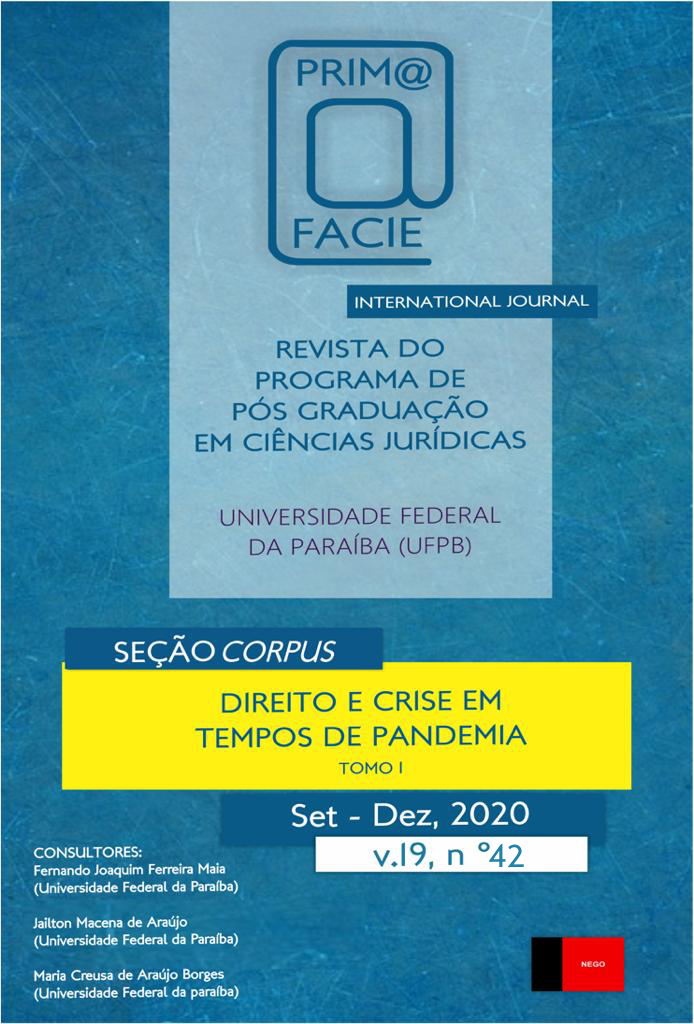Covid-19 And Profiles Of “Complaints” In Quarentine: The Implications Of Using Personal Data To Expose Those Who Breach The Social Isolation Rules And The (In) Violability Of The Right To Extimity
DOI:
https://doi.org/10.22478/ufpb.1678-2593.2020v19n42.54299Keywords:
COVID-19; Right to extinction; Network society.Abstract
At the same time, there is a culture of visibility in which day-to-day and private life issues are voluntarily exposed on social networks. In view of this, the right to extinction emerges as the prerogative that the holder has to expose intimacy in sociability means - such as social networks - and yet have the possibility of being protected against acts of third parties. As a result, it is important to check the creation of profiles on the Instagram social network to “denounce” people who fail to comply with the social isolation measures imposed as a result of COVID-19, through the publication of images taken from the profiles of the owners of the published images. In view of these facts, the problem presented in this paper is the extent to which the use of personal data published in Instagram profiles intended to “denounce” anyone who fails to comply with the rules of social isolation in times of COVID-19 generates a violation of the right to extinction? To answer the problem, the inductive method is used as the approach method, the bibliographic analysis as a method of procedure and, finally, the use of files and abstracts as a research technique. Thus, it is concluded that there is a violation of the right to extinction in the cases under analysis, because despite the photos have been posted on the social network Instagram, this does not make them public domain nor does it authorize their indiscriminate use by third parties.


